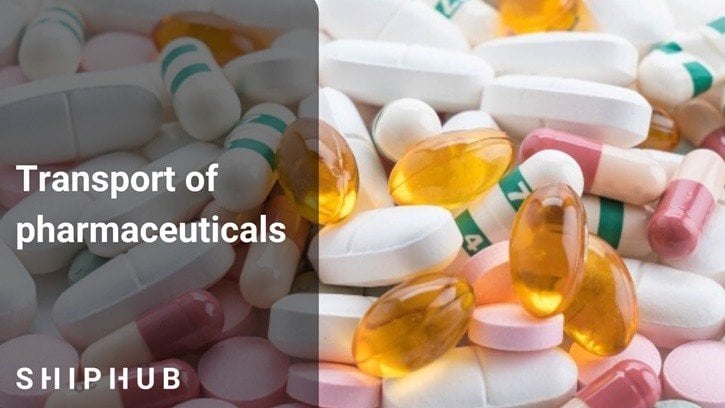The transport of pharmaceuticals is extremely important. Mainly because they are susceptible to external factors. Their properties may change depending on the exposure, temperature, or unstable surface. For this reason, transport is also subject to legal conditions, for which the entrepreneur and the carrier are both responsible.
Transport of pharmaceuticals – Responsibility
According to the law, the entrepreneur conducting wholesale trade is responsible for ensuring proper conditions of drug transport. The quality of medical transport is checked, for example, by sanitary services, health ministry, and even pharmaceutical companies. However, it turns out that if a defective batch of medicaments is found, there are grounds for the civil liability of the carrier towards the entrepreneur. This is the case when pharmaceuticals have been transported in breach of the law, or the provisions of the contract concluded with the entrepreneur dealing in the wholesale of medicines.
Transport Requirements
The mode of transport must be marked so that other road users have no doubts about what is in the vehicle. What is more, the type of medicine may affect the need to choose the right mode of transport. This is due to the need to maintain adequate transport time, stability, or separation from light. For most pharmaceuticals, the air temperature in transport should not exceed 25 degrees, and the maximum value of humidity is 70%. It is worth remembering that these conditions result are primarily from the specifics of the medications, and they may change.
One of the first points checked during the control is whether the mode of transport corresponds to a particular pharmaceutical. First of all, it should also be documented that transport took place at the required temperature. The calibration of measuring devices turns out to be extremely important. Otherwise, on-site measurements are considered invalid, and this may subsequently result in the need to dispose of the goods.
Vaccines
All biological materials such as blood for transfusion, organs for transplantation, and vaccines are particularly vulnerable to damage during transport. That is why they need the right temperature.
The Ministry of Health recommends storing vaccines at a temperature of +2 to +8 degrees Celsius from the time they are produced until they are given. That is why they are most often transported in refrigerators. Besides, they are packed in thermal bags.
However, not all vaccines require such a low temperature. This applies primarily to liquid vaccines for parenteral apply. Other vaccines, i.e., produced in the form of granules, tablets, or capsules, are stored at room temperature, even though they contain fragments of microorganisms. Also, the so-called “cold chain” principle is used. It is mainly about not subjecting vaccines to rapid temperature changes. According to experts, the best way to transport vaccines is by plane.
Transport of pharmaceuticals – Reloading chamber
The trade of medicinal products is divided into wholesale and retail. It turns out that the type of turnover affects the transport of medical goods. Wholesale transport of medicinal products should take place directly from the posting to the pickup point, i.e., from the manufacturer to the wholesaler, and from the wholesaler to the pharmacy.
Transshipment chambers should be used if transshipment is necessary (this excludes the possibility of transporting medicinal products as part of general cargo transport). They fulfill an important element of the transport system of pharmaceutical wholesalers. According to the law, medicinal products can be stored in transshipment chambers, provided that this period does not exceed 36 hours.
Pharmaceutical scandals
Apply a vaccine that has been improperly stored or transported can cause a serious threat to health and life. The Middle Kingdom is known for numerous vaccine scandals.
In 2019, two Chinese pharmaceutical companies: Changsheng Biotechnology and Wuhan Institute of Biological Products sold potentially risky vaccines. Changsheng Biotechnology sold over 250,000 defective vaccines for children, and the Wuhan Institute of Biological Products sold up to 400, 000.
In 2016, more than 200 people involved in the illegal sale of 2 million out-dated or poorly stored vaccines were detained.
In 2010, an official from Shanxi Province was sentenced to life imprisonment for violating the terms of cooperation with vaccine producers and embezzlement.





